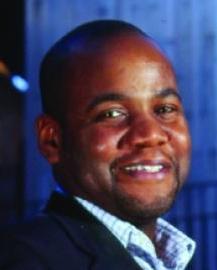Group manager, Buro Happold
It was here that he became aware of the many disciplines and professions that were involved in a construction project: "I got more involved in the engineering side and over that period London Underground were bringing a lot of consultants in to do work traditionally carried out by internal staff. I started talking to a few of them and it sounded quite glamorous and I realised I wanted to do this."
On his training scheme Okpala studied at Diploma and Higher Diploma level before completing his electronic and electrical engineering degree via day release at DSSR in Ealing. There he learned about 'real' design consultancy work mainly in healthcare projects like the Chelsea and Westminster hospital. From there he joined consulting engineers Hulley and Kirkwood in 1993: "They had come to London on the back of work at Heathrow airport and were booming in what was essentially a depleted market."
Personal circumstances led to a move to Birmingham with the practice, but it was Okpala's desire to return to London that led him to Buro Happold in 1995: "What appealed to me was the drive and enthusiasm here and the fact that they were multidisciplinary. There's also a strong culture here built up from the original partners. You felt their presence and you could see them about the shop floor. They got involved in design and were on first name terms with everybody. The partners had faith in the ability of their engineers and encouraged them to take on as much as they could handle."
This culture seems to have had a big impression on him, and the way he views both his role and that of the company. "It has actually got stronger for me, it is so evident in the projects that we do like the Millennium Dome and the British Museum, Great Court both of which I was involved in. What Buro Happold instills in you is to have a holistic view of a project and what you can contribute to other areas. It's that kind of view that always searches for ways we can add value."
As group manager, Okpala fulfills a broad remit from project work to financial management: "I like to keep up the project input because its about continual improvement and finding better ways to deliver a quality project. There's also an area of portfolio development, and trying to channel individuals' aspirations into making a contribution to the company and industry."
Okpala sees continual improvement as key for both Buro Happold and the industry as a whole, especially with the influx of PFI projects and a what is essentially a new method of working: "As an industry I think there needs to be a mind set change in how we deal with quantifying value in terms of use of buildings over a thirty year period. I'm also interested in how we can overcome contractual constraints to engage the supply chain quicker. It's about trying to get a group of individuals with different organisational priorities to buy into a set of common goals to deliver a 'best value' building project." Okpala does seem to embody the ethos that his company holds dear, always looking for that next step forward and always trying to improve on what has been done: "I think we're in our teenager period – we've had our spurt of growth and we're looking for where we need to go next and how we need to develop. You can never rest on your laurels, you've always got to be looking out for the next opportunity."
Source
Building Sustainable Design






















No comments yet